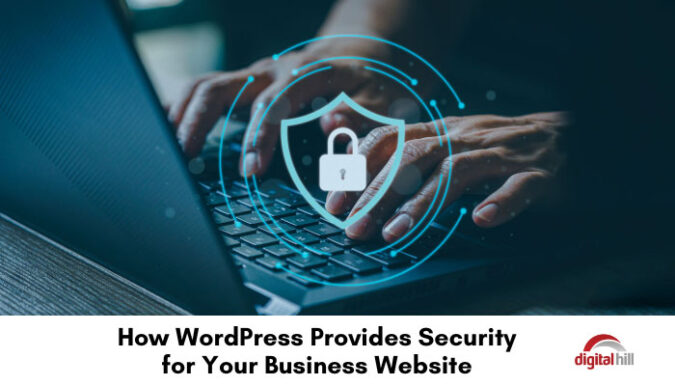How WordPress Provides Security for Your Business Website

Solid website security is among the many reasons you should consider using WordPress to build your business website. Unlike other website development platforms, WordPress has default security settings and configurations that help protect your website. However, while basic WordPress security configurations can mitigate cybersecurity risks, you should consider implementing other cybersecurity strategies to keep your site safe. Below are the default security features from WordPress for business websites.
1. Default HTTPS Activation
WordPress makes it easy get your business website’s SSL (Secure Sockets Layer) certificate. With WordPress features like Let’s Encrypt, website owners and developers can make their sites secure within minutes. WordPress automatically generates and sets up SSL certificates for new websites. And unlike other platforms, WordPress automatically loads your site over HTTPS.
2. Protects Websites Against DDoS
Most DDoS (Distributed Denial of Service) attacks launched by hackers target business websites. If your website lacks some basic security features, you can easily become a victim of these attacks. Business websites with budget web hosting and a shared hosting plan are specifically vulnerable to DDoS attacks.
Websites with limited server resources can’t mitigate DDoS attacks. Fortunately, WordPress allows web developers access to high-quality servers. With this, your business website will have enough power and security features to mitigate traffic surges and malicious attacks. Surprisingly, this is available to everyone using WordPress.com, including those on the free plan. This feature is also available by default.
3. Automated WordPress Updates
If you are using self-hosted WordPress for your business website, you should regularly check for new updates of WordPress themes and plugins. You can also configure your website to update plugins automatically. Keeping up with WordPress updates shouldn’t be an issue if you proactively monitor your website.
However, choosing a hosting provider that guarantees automatic updates for key WordPress components is better. With this, you won’t struggle with the tedious updating tasks or risk exposure due to an out-of-date version. You should activate automated updates for Content Management System features, custom themes, and plugins.
4. Automated Backups for Plugin-Enabled Plans
Most web hosting service providers only offer automated website backups in their managed and high-end subscription plans. As such, site owners rely on third-party services or backup plugins for secure backup. This makes it challenging for beginners who don’t know some of the best practices for secure backup settings.
Fortunately, this isn’t an issue for those who’ve built their business sites on WordPress. The platform provides automatic website backups on plugin-enabled plans. As such, site owners shouldn’t be worried about losing their site’s content or choosing a bad backup plugin. Restoring backups is also easy directly from the website’s dashboard.
5. A Dedicated Security Support Team
Nothing beats the peace of mind that comes with knowing you can access a dedicated support team for site security issues. While most web hosting service providers offer support services, their professionals might not understand your development platform extensively. Most web hosting support reps are not experts in WordPress security breaches.
Fortunately, WordPress allows site owners and developers access to a highly trained technical team that understands WordPress CMS inside and out. If you want to make some security upgrades or your site is compromised, WordPress’s dedicated team can intervene to restore your site quickly, and offer additional security solutions.
Summary
Business site owners should pay close attention to their site security. Therefore, while WordPress offers secure hosting out of the box, you should consider some best practices to protect your site from data breaches, phishing attacks, and other issues. This includes using unique and secure passwords, enabling two-factor authentication, vetting themes and plugins carefully, and updating them regularly.
